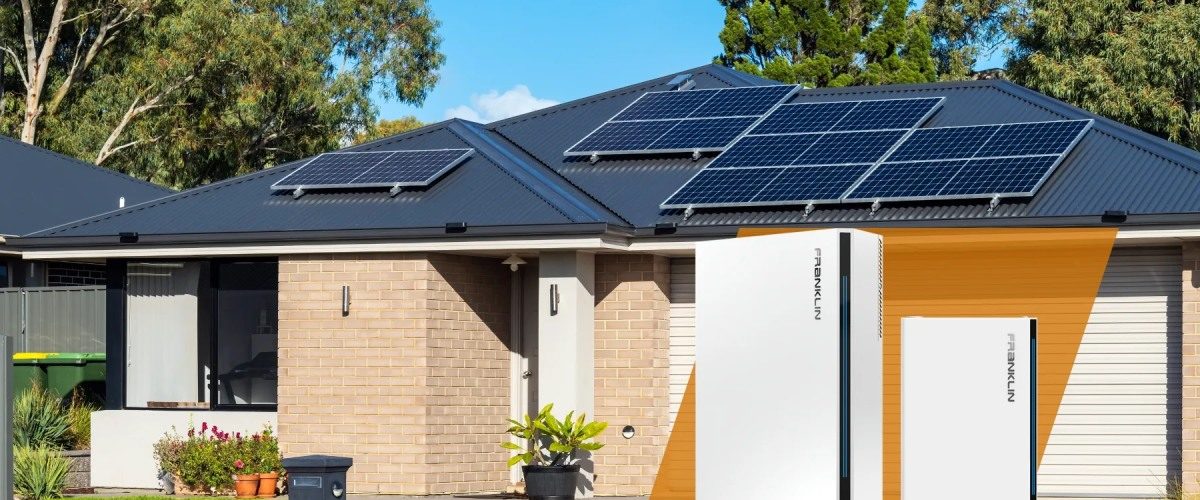

When you are planning for a solar project, one of the questions that comes up is how to size a solar lithium battery for your home or business. The battery is not just a component for storing. It is the main energy for the whole of the solar system. If you choose an undersized solar lithium battery, you’ll run out of power during the cloudy climate and even at night; if you choose the oversize one, you will pay for battery space you hardly ever use. Actually, you pay higher cost, not better performance. Finding the perfect balance is important, and that’s exactly what this guide will help you do.
In this article, we are going to cover every essential step, from using the right solar battery size formula to selection tips for residential and industrial systems. No matter if you are a contractor in Dubai or a distributor in Tehran, this guide can help you choose smarter and has the suitable solar lithium battery size.
Choosing the correct solar battery for home or even for commercial use directly impacts how well your system stores and provides energy when you need it. For many industrial customers all over the middle east such as the UAE, Iraq, and Iran, battery sizing directly affects ROI, backup duration, and the lifespan of your system.
Selecting the accurate size of LITHIUM SOLAR BATTERY makes you sure that your solar array works at its highest efficiency. In comparison to lead-acid batteries, lithium batteries have deeper discharge, faster charging, and longer lifespan, so all of these things make correct sizing even more vital. Imagine your home losing power in the middle of the evening because of poor battery sizing, what proper lithium battery sizing can help you avoid.

Before starting to use a solar battery size formula, you should understand the parameters that define the right capacity. Proper sizing is about how your entire solar system works with your environment around your home Here are the most important factors consider when determining how to size solar lithium battery:
The first step is to think about the average energy usage every day. For doing this, check your previous electricity bills or use a power meter to measure the load. For example, if your household uses about 10 kWh each day, that is the minimum storage the battery system must support.
A simple approach is to multiply your daily energy use by 1.2. This adds a safety margin to prevent sudden shortages when usage rises or sunlight is low
Depth of discharge tells you how much of the battery’s stored energy can be safely used.
Lithium solar batteries can usually discharge 80–90% of stored energy without affecting lifespan, while lead-acid batteries are limited to 50–60%. This makes lithium the smarter choice for anyone who is exploring for space, cost, and efficiency.
For example, a 10 kWh lithium battery with 90% DoD delivers 9 kWh you can actually use, almost twice as much as a comparable lead-acid battery.
Most home solar setups work at 12V, 24V, or 48V. For larger systems, a higher voltage system has better performance because it can reduce current flow and cable losses .So,we recommend you to match the battery voltage with your inverter and controller specifications.
Think about how long do you want your system to last during cloudy days or at night؟ this is known as system autonomy
Typically, 1–2 days of autonomy works for a home system, while industrial users in remote areas may need 3–5 days. Increasing backup days can increase the whole storage requirement.
It’s important to remember that no system works at full efficiency. Expect usually between 5–10% energy loss in your system due to inverters, controllers, and cables. If you want to be safe, make sure to consider it when sizing your battery.
Most of the time, smart system design predicts future growth.If you plan to grow your setup with additional devices or panels, it is better to choose a modular LITHIUM SOLAR BATTERY system that supports all of them without replacing your existing system. These options of any lithium battery sizing guide, Helping your investment deliver stable and dependable power for many years.

by collecting your system data, you can estimate the capacity of the battery which is required for your goal. This simple and accurate formula lets you have a suitable solar panel battery for home.
Battery Capacity (Ah) = (Daily Energy Use × Backup Days) / (System Voltage × DoD × Efficiency)
Look at the example:
Battery Capacity = (8 × 3) / (48 × 0.85 × 0.9) = 24 / 36.72 ≈ 654 Ah
This means you need a 48V / 654 Ah lithium battery bank, or about 31.4 kWh of total storage, to cover your 3 day backup requirement.
| Parameter | Example Value | Description |
| Daily Energy Consumption | 8 kWh | Energy used by home or system per day |
| Backup Days (Autonomy) | 3 days | Desired days of energy storage |
| System Voltage | 48 V | Standard inverter voltage |
| Depth of Discharge (DoD) | 85% | Maximum usable portion of battery capacity |
| System Efficiency | 90% | Accounts for conversion and cable losses |
| Calculated Capacity | ≈ 654 Ah | Required total battery bank capacity |
| Equivalent Energy (kWh) | ≈ 31.4 kWh | Usable storage capacity |
Beyond numbers, there are some things you should consider when deciding how to choose solar lithium battery for your system:
Each home has its own energy patterns. Here we look at the sizing reference for residential systems:
| Daily Load | System Voltage | Days of Autonomy | Recommended Capacity | Ideal Application |
| 3 kW | 24V | 1 | 150 Ah | Small homes / cabins |
| 5 kW | 48V | 2 | 250 Ah | Mid-size homes |
| 10 kW | 48V | 2 | 520 Ah | Villas / Small offices |
| 20 kW | 96V | 2 | 1150 Ah | Large homes / Factories |
| 50 kW | 96V | 3 | 2900 Ah | Industrial sites / Warehouses |
For distributors, project managers, and engineers the buying decision is more than paying attention to capacity. Here are a few professional recommendations, you should follow:
Understanding how to size a solar lithium battery isn’t only about numbers, it’s about building true energy independence and system reliability. No matter if you are managing a villa, a factory, or a solar distribution business, choosing correct sizing lets you save cost, protects your equipment, and maximizes energy efficiency.
At Pas Solar, we supply premium Solar Lithium Battery in UAE and neighboring markets, offering original products, quick delivery, and technical guidance for your projects. Contact our team now to get a customized sizing consultation.
PAS SOLAR is a Distributer of solar equipment based in UAE. Composed of a team of professionals with the goal to provide customers with the latest Tier 1 Solar system in the region.
"*" indicates required fields